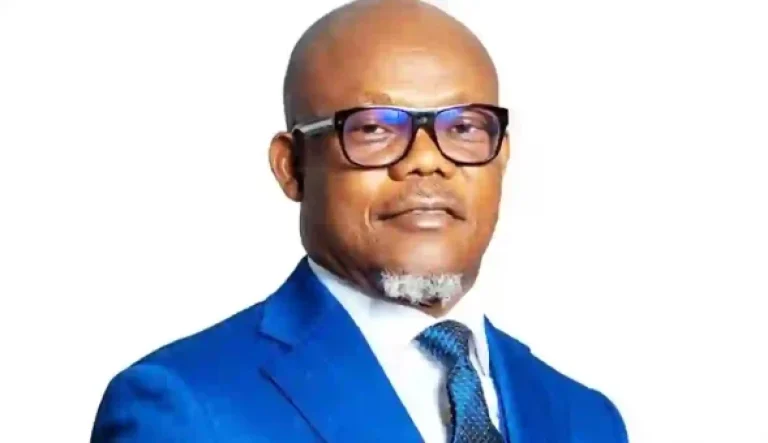
The National Drug Law Enforcement Agency (NDLEA) on Thursday launched a toll-free drug abuse call centre in Abuja.
Speaking at the launch, Chairman/Chief Executive of the Agency, Brig Gen Buba Marwa Rtd, said the provision of the toll-free helpline is a milestone in their resolve to broaden access to quality health care for drug users in the country.
This, he said, has become a necessity and a strategic intervention in the determined effort to bring the increasing cases of drug use disorder and related health concerns under control.
Marwa said the helpline service which would be 24/7 has been simplified by making it language-sensitive whereby callers have the choice of language including English, Pidgin, Hausa, Yoruba and Igbo.
He said the call centre would be manned by a team of licensed and credible clinical psychologists, counsellors, support workers and mental health professionals who would provide the needed support in aiding recovery, managing social and emotional problems, improving quality of life and enhancing performance and productivity of the users of the service.
He added that with its state-of-the-art equipment and its team of highly trained professionals in substance abuse disorder, the centre would offer a teletherapy service according to global best practices.
The NDLEA boss said the Agency recognised the importance of providing a safety bubble for users who ordinarily cannot access the conventional treatment services at established rehabilitation centres due to poverty, social stigma and the resultant discrimination attached to being an identified drug user in society, among other factors.
He said a toll-free helpline that guarantees anonymity, confidentiality and safety, is a motivation for those in need of health help to freely seek such.
Marwa said besides helping to provide telephone-based psychosocial support and addiction services in the War Against Drug Abuse (WADA), it will also provide them with information that will deepen the understanding of the country’s dynamics of drug use and “potentially put us ahead of the game.”
He said, “The importance of treatment in addressing the drug challenges cannot be overemphasised, especially given the magnitude of drug abuse in Nigeria. The step we are taking today will be appreciated by those who have a good grasp of the consequences of the patterns of abuse exposed by the 2018 UNODC National Drug Use and Health Survey.
“Except we want to indulge in self-delusion, having 14.3 million people abusing drugs―and an abuse pattern that includes polydrug use, widespread abuse of pharmaceutical opioids and a sizeable number of People Who Inject Drugs―comes with grave health consequences.
“The recently released World Drug Report 2022 noted that: People in need of treatment cannot get it, women most of all. Women account for over 40 per cent of people using pharmaceutical drugs for non-medical purposes, and nearly one in two people using amphetamine-type stimulants (ATS), but only one in five in treatment for ATS is a woman. This global picture gets gloomier when localised to Africa, and our country in particular.
“The report also drew our attention to the fact that the suffering of those struggling with addiction is needlessly compounded when people cannot access evidence-based care or are subjected to discrimination. We are also informed by the report that the consequences of drug use can have ripple effects that hurt families, potentially across generations, as well as friends and colleagues. This last one is a clarion call for society to accord priority to the treatment of drug users.
“Indeed, the country has treatment centres, and indeed NDLEA has 26 treatment facilities; but these are grossly inadequate in the face of the statistics from the National Drug Use Survey. The situation is further worsened by access challenges due to social labelling and stigmatisation faced by drug users.
“Ladies and gentlemen, NDLEA recognised the importance of providing a safety bubble for users who ordinarily cannot access the conventional treatment services at established rehabilitation centres due to poverty, social stigma and the resultant discrimination attached to being an identified drug user in society, among other factors.
“Therefore, the inevitability and the utility of a toll-free helpline that guarantees anonymity, confidentiality and safety, as a motivation for those in need of health help to freely seek such.
“To those in need of help, we open a new chapter today, whereby help is just a phone call away. We have simplified the helpline service by making it language-sensitive whereby callers have the choice of language including English, Pidgin, Hausa, Yoruba and Igbo. And very importantly, the helpline is open 24/7. A call to the helpline, 0800 1020 3040, elicits a prompt response from professionals, regardless of the time or geographic location.
“The calls open the door to engagements with counsellors, followed by service orientation that leads to case management, at which point the engagement moves from telephone assessment to follow-up therapy sessions and referral. This seamless process ends in Resolution and Aftercare Follow-Up. Given the simplicity of the process, there is no valid excuse for not accessing treatment by drug users and their concerned families. We expect those concerned to take advantage of this opportunity.
“In conclusion, I must, on behalf of NDLEA, express our profound appreciation to Primly Services Limited, our partner in this project. The partnership between both organisations made this happen and we look forward to taking further giant strides together.”
The Attorney General of the Federation and Minister of Justice, Abubakar Malami, said given the current drug use prevalence in the country, the necessity for a Toll-Free Helpline to cater to the needs of People Who Use Drugs and their families is long overdue.
Represented by the Director of Public Prosecution, Mohammed Abubakar, he said the disturbing upsurge in the use of psychoactive drugs, especially cannabis, prescription opioids, and unconventional substances across the country has made the establishment of the call centre by NDLEA inevitable.
He said treatment facilities for drug users in the country are grossly inadequate and in some places completely lacking or out of reach of the common man due to high cost, poor information, accessibility, and distance from rural areas.
He said evidence shows that stigmatization and discrimination are huge challenges that deter many drug users from accessing treatment centres in Nigeria.
“Many times, family members of drug users wonder where to find help and treatment options available within and outside their localities. Lives and dreams have been destroyed due to the devastating consequences of drug use. Many families are in disarray due to the use of drugs by a family member and do not have adequate information with regards to where and how to seek help and get psychosocial support.
“This Call Centre will no doubt contribute to addressing Nigeria’s growing drug problem by providing information on substance use, treatment facilities, and other drug-related issues to the drug users and their families, and invariably facilitate entry into drug treatment.
“Moreso, with the anonymity of calls, the caller is not required to provide personal information, this ensures the individual is not judged, scolded, or reprimanded for drug use but provided with an insight into the benefits of treatment and rehabilitation. The step taken today will help us to support, guide, and provide a safe and stigma-free space for drug users to get the help they need.
“Having said this, I also want to believe that with time NDLEA will establish more of these call centres, especially along geo-political zones for easy accessibility and reduction of issues arising from the poor network,” he said.
Goodwill messages were also given by the Country Director of the United Nations Office for Drug Control, Dr Oliver Oliver Stolpe, and the leader of the European Union delegation, Elemi Zerzerlidou.” (The Nation)







250371 92157I feel this web site has very superb composed topic material articles . 515838